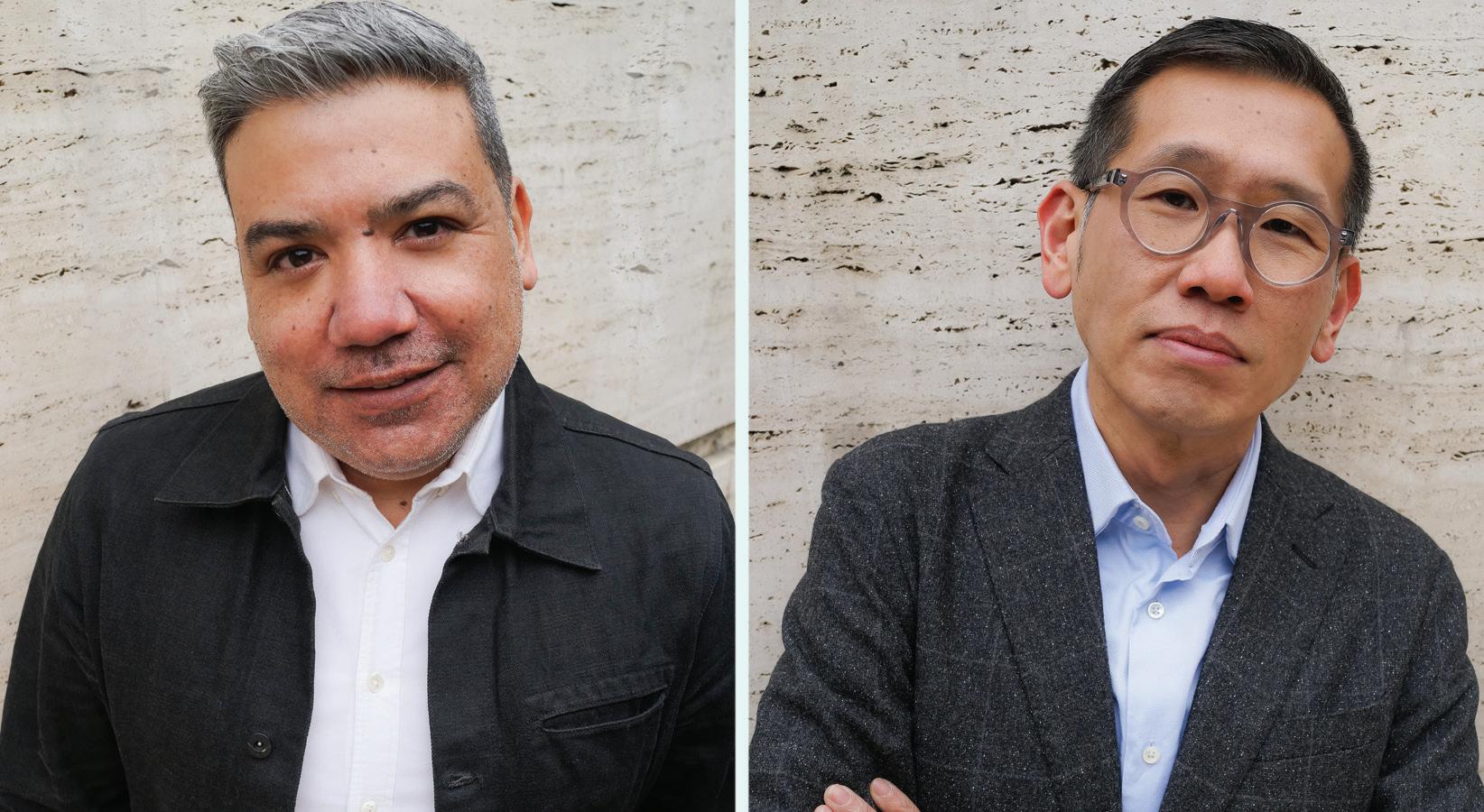
3 minute read
BEHIND THE FEST
culture+
Spotlighting the people and projects you need to know
@BACKSTAGE FACEBOOK.COM/BACKSTAGE @BACKSTAGECAST
Behind the Fest Eugene Hernandez + Dennis Lim, New York Film Festival directors
By Brandon Kirby
LIKE THE REST OF THE FILM
industry, the New York Film Festival, one of the cornerstones of awards season, has been rocked by drastic changes caused by COVID-19. Among them comes an unprecedented collaboration between NYFF, Venice, Toronto, and Telluride, all of which will be treating their festivals as a world cinema united front.
Eugene Hernandez and Dennis Lim, respectively the director and director of programming for NYFF, are ready to adapt the historic fest to a new reality. “Because so much is changing so quickly around festivals and the role of festivals and what festivals are, there are a lot of questions from filmmakers, from the industry, from the professionals in New York and [the people] who attend our
festival, about how navigating it and experiencing it will be different,” says Hernandez.
NYFF 2020 will take place from Sept. 17–Oct. 11 with virtual, drive-in, and outdoor screenings at Lincoln Center, in addition to its new partnership with Rooftop Films’ Queens Drive-In at Flushing Meadows Corona Park and Brooklyn Drive-In at the Brooklyn Army Terminal. Per a release, the partnerships are “intended to act as a cooperative effort to bring films safely back to New Yorkers and to highlight the power of cinema to build community and camaraderie among our fellow citizens.”
What has it been like adding virtual and outdoor screenings? EUGENE HERNANDEZ:
We know the festival in a very Eugene Hernandez and Dennis Lim
specific way, much like our audience. It’s a tradition. It has these traditional moments and this traditional structure that is very much rooted in the place. All of that said, we’re this almost 58-year-old festival, but in a lot of ways, this year is the first year.
We are mindful of the fact that the city we live in is undergoing a tremendous challenge. Film culture is really struggling in many ways because of what’s happened in the last few months. And it’s with that kind of mindfulness that we’ve reimagined how to connect our audience and, frankly, how to connect new audiences, how to connect folks throughout the city with our festival. It’s an opportunity for us to engage new audiences. From the ground up, in every aspect of the festival, we’ve had to look at it differently.
What’s your No. 1 piece of wisdom for early-career filmmakers looking to submit a
project? DENNIS LIM: I don’t know that there’s one piece of advice that applies to all filmmakers. It depends on the kind of cinema you’re interested in. I actually think, as somebody who’s encountered film students a lot, watching films is increasingly underrated. I feel like people don’t do enough of it. One way to learn is to immerse yourself in as much cinema as possible, and also to encounter different forms of filmmaking, which might actually be entirely different forms of expression, but also entirely different economic models of filmmaking. That’s a useful thing for a young filmmaker to think about.
But on a more practical level, because filmmaking is, more than so many other art forms, such an intensely collaborative endeavor, having a support system is important in the forms of collaborators [and] people you trust. It’s not like you can go to your desk and write or paint or whatever. You need people, which is why I think a support network of those colleagues and collaborators is important to have early in your career.
What’s the best film you’ve
seen recently? DL: I’m not just trying to plug our programming, but I’ve been watching submissions, and the film we announced as opening night I feel very, very strongly about. I know Eugene does, too. Steve McQueen’s “Lovers Rock”... It’s a film in which the politics are sort of woven into everyday life in a way that I find incredibly powerful and moving.






